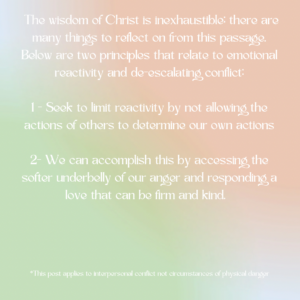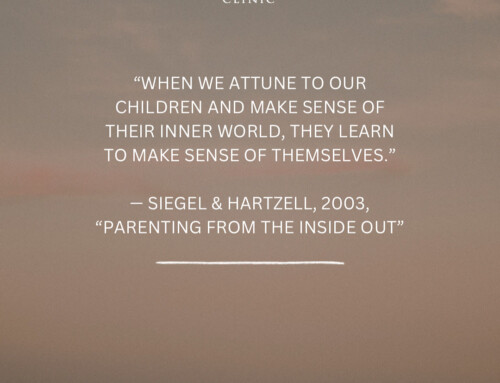

This passage from Scripture has gained much attention throughout the centuries. While there’s much to be said (and most likely clarified) regarding how to understand Christ’s words theologically, there’s an incredibly practical lesson here.
It’s important to note that for the purpose of this post, “when someone strikes you” is a metaphor for interpersonal conflict, not a literal reference to physical harm/danger.
Normal relational conflict escalates through a circular pattern of defensiveness. Someone blames/criticizes us and then we counter. This typically continues until both people are hurt enough to retreat. Exiting this pattern to contain the hurt is the responsibility of both people. Christ reminds us that our focus should be on ourselves, not the other. This is the first principle.
The second principle expands on this responsibility and relates to our internal process. Christ says to “turn the other cheek”, but what does that mean? When someone hurts us, we become activated (cheeks that are struck become red, inflamed, and burn with pain). Our instinct is to respond from this activated place. Instead of doing this, Christ tells us to turn the part of us that is calm and at peace towards the other person as well. Those last two words (“as well”) are very important. It’s not that we pretend we aren’t hurt or angry but rather we use the wiser, more compassionate, and courageous part of us to respond in a way that doesn’t continue the hurt.
* The information provided is for self-enrichment and not intended to replace any necessary mental health treatment.
Want more ways to receive this content? Follow us on Instagram or Facebook or subscribe to our e-newsletter.
Warmly,
Jonathan Dixon, LMFT
Alpha Omega Team




